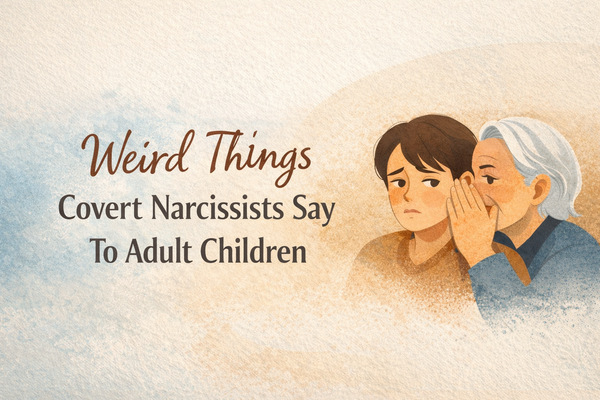Hello, my dear readers!
During my first year of training as a Psychiatrist, when I first discovered an online Borderline Personality Disorder Test, I remember feeling a mixture of emotions, including anxiousness, curiosity, and relief. Anxiousness, because what if I had Borderline Personality Disorder? Curiosity, because I could finally put words into my feelings and experiences? Relief, because answering the questions of the Borderline Personality Disorder Test seemed like a step towards clarity. If you have ever heard of it or taken such a test, then you probably know the feeling. The sense that may be, just may be, you have unveiled the explanation of your struggle with mood swings, emotional instability, self-image, and relationship complications.
But here is what I have learned as a Psychiatrist and someone interested in mental health awareness: The Online Borderline Personality Disorder Test is a valuable tool that can serve as a starting point, but it is not the final verdict. It is just a single piece of one large puzzle. The real understanding and true healing come from professional evaluation and treatment.
Being a mental health professional myself, I feel like an online test and professional diagnosis are both important in their own respective places. Therefore, today I want to walk you guys through the significance of both tools and how combining them can make your journey towards mental health more fulfilling and smooth.
Without further ado, let’s get started!
The Role of Online Borderline Personality Disorder Tests
Let’s just be honest with each other here.
Sometimes we become a lazy sloth bear. It feels a lot easier to take an online test rather than booking an appointment. It’s accessible, cheap, time-saving, free of cost, and accessible to you from anywhere. I value these tests for similar reasons. But I don’t just rely on them solely. I consider them a stepping stone towards a more profound and definite answer to my battling mind.
When you sign up for an online Borderline Personality Disorder Test, you are essentially engaging in self-reflection. The questions in an online test typically inquire about your patterns of thinking, feeling, and behavior. The questions can be:
- Do you struggle with the fear of abandonment?
- Do you experience frequent mood shifts?
- Do you act impulsively in ways that may be harmful?
- Have you engaged in any risk-taking behaviors?
- Do you feel like your identity often changes?
- Do you feel like you can’t recognize yourself at times?
These are not just random questions. These are the common features of Borderline Personality Disorder. Yes, it is not a diagnostic tool but surely a SCREENING TOOL, and a reliable one. It can serve you as a mirror, helping you identify the patterns you may have overlooked for many years.
For most people, this appears to be the first step towards considering Psychotherapy. It is a way of saying, “Whatever I am experiencing is valid. Therefore, I should get to the depths of it, and the first step is to book an appointment with a mental health care provider”.
What Are the Limitations of Self-Assessment?
Online Borderline Personality Disorder Tests are good for starters, but I want to emphasize something very crucial here: these tests can never substitute for a professional diagnosis. If you have taken an online test and are uncertain about the results, you can use resources like Psychology Today for better guidance and accuracy.
Why am I saying this?
That’s because tests are screening tools, not comprehensive evaluations. They can tell you if your symptoms resemble BPD, but they can’t rule out any other mental illness if present or confirm a BPD diagnosis, for that matter. Let me give you an example. Mood swings are present in Manic episodes of Bipolar Disorder, as identity struggles can overlap with Trauma or Depression.
Many individuals come to my Outpatient Department claiming they have BPD, but thorough evaluation and authentic diagnostic tools reveal they have either Depression, General Anxiety Disorder, Panic Attacks, or Bipolar Disorder, or even ADHD, etc.
Think of it like documenting the temperature at home. It can show whether you have a fever or not, but it can’t tell you the cause of it. Only after a proper general physical examination and appropriate lab tests can you know the exact cause. Likewise, if your score on an online Borderline Personality Disorder Test is on the higher side, it shows you should explore further with a Psychiatrist or a Therapist.
Why Is a Professional Diagnosis Important?
The majority of the individuals suffering from any mental health condition, not just Borderline Personality Disorder, are scared of seeking a mental health expert’s opinion, only because of the fear of a professional diagnosis, and also the stigma surrounding it.
Understand this: when you meet with a Psychiatrist or Psychologist, they don’t rely on a random quiz alone. Instead, they:
- Take a detailed history: Understand your background, your current living patterns, past history, childhood trauma, or any adverse life events.
- Explore each symptom deeply: Looking at their frequency, intensity, trigger factors, and how they impact your daily living and relationships.
- Rule out other mental health disorders: Such as Major Depressive Disorder, Bipolar Disorder, Post-traumatic Stress Disorder, etc.
- Consider comorbid conditions: Since BPD frequently overlaps with self-harm, suicide, substance abuse, and anxiety.
This entire process is at least 4-5 hours long, much more detailed and accurate than any online test. Above all, it doesn’t confuse you. It guides you towards an actual treatment plan that works best for you. Common therapies include Dialectical Behavior Therapy (DBT) and Cognitive Behavior Therapy (CBT).
Combining Both: Online Test + Diagnosis = Accuracy & Clarity
So, my dear readers, after an extensive discussion of both tools, where do we stand? Should you avoid taking online Borderline Personality Disorder Tests entirely? Absolutely not. As a matter of fact, I will highly encourage you to use them as a tool for self-reflection, not sabotage or hostility. Once you have performed an online test, don’t worry. Whatever the outcome may be, take it to discuss with a mental health specialist.
Here is how I would like to frame it:
- The online test = Self-Awareness. It helps you to become aware of the possible signs and gives your feelings a language to talk about your struggles and silent battles.
- The professional diagnosis = Accurate Guidance and Treatment. It validates your experiences and confirms what’s really happening, thereby ensuring that you begin the right treatment.
When both tools are combined, you move from uncertainty to clarity, from confusion to a sense of direction.
My Personal Experience
I have had individuals who came to me after taking an online Borderline Personality Disorder Test. Some of them were anxious and fearful as they were convinced, they had BPD and would be labeled for a lifetime. While some were hopeful and relieved that there might be a name for what they were going through.
In both scenarios mentioned above, my role has been to empathize with my patients, listen to them without judgment, validate their feelings, and then carefully assess their symptoms to provide an accurate diagnosis. I try to make sure my team and I carry out appropriate investigations and apply relevant, authentic tools to determine whether the patient has BPD or not.
What always leaves me in awe is how empowered individuals feel once they get a professional diagnosis. I believe that it’s not just naming the disorder, it’s finally about having a sense of direction for healing.
Why Therapy Matters Beyond the Labels?
It’s not only about having BPD or not. Whether you are diagnosed with this disorder or anything else, therapy always helps. Mental health is not just confined to Borderline Personality Disorder; it lies on a spectrum. If you are struggling with Depression, Emotional Instability, Anxiety, Self-doubt, Complex relationships, Trauma, or Abuse, therapy can always give you tools to manage these challenges.
For instance, Dialectical Behavior Therapy (DBT) can help to manage impulsivity, self-harm, risk-taking behavior, and distress tolerance. On the other hand, Cognitive Behavior Therapy (CBT) enables you to convert negative thinking patterns (Cognitive Distortions) into alternative, healthy thinking processes. These are not just “BPD Management Skills”; they are life skills that anyone, including myself, can benefit from.
So, even if you don’t meet the criteria for BPD, you can still benefit from Psychotherapy. It will help you grow and heal. It will allow your soul to flourish and your body to be enriched with positivity.
A Gentle Call to Action!
If any of you have taken an online Borderline Personality Disorder Test and felt a spark of recognition, I intend to encourage you: Don’t stop there! This test is the beginning of your story, not the end of it. The next step towards healing is to seek professional help and get a thorough Psychiatric evaluation done.
At Youth Table Talk, our team of experts provides comprehensive assessments to help you understand not only BPD but also if you are suffering from any other mental health conditions. From there, we work together on a plan that brings you hope, healing, and relief.
References
- American Psychiatric Association. Diagnostic and Statistical Manual of Mental Disorders, Fifth Edition (DSM-5). Arlington, VA: American Psychiatric Publishing, 2013.
- National Institute of Mental Health. Borderline Personality Disorder.
- Linehan, M. M. (1993). Cognitive-Behavioral Treatment of Borderline Personality Disorder. Guilford Press.
- National Alliance on Mental Illness (NAMI). Borderline Personality Disorder.
Dr. Talia Siddiq is a resident psychiatrist in training at Dr. Ruth K.M. Pfau Civil Hospital Karachi, deeply passionate about understanding the human mind and helping people find healing. Beyond her clinical work, she is also a writer who believes that mental health conversations should be easy, relatable, and stigma-free.
She started writing in 2020, turning her reflections and experiences into articles that speak to the struggles many young people silently face—whether it’s self-harm, addictions, relationships, or simply finding direction in life. Over time, her writing has expanded into areas like career guidance and financial independence, because she strongly believes that resilience isn’t just about surviving emotionally—it’s about building a meaningful, balanced life.
For Talia, YouthTableTalk is more than a blog. It’s a safe corner on the internet where young people can pause, reflect, and feel understood. Her goal is not to lecture but to have a conversation—just like a friend who listens, shares, and gently guides you toward growth.
When she isn’t studying psychiatry or writing, you’ll often find her reading, exploring self-growth books, or cooking something new for her family. She brings the same curiosity and compassion to her personal life that she does to her work: always seeking better ways to connect, learn, and inspire.
Through YouthTableTalk, she hopes to remind every reader of one simple truth: you’re not alone, and your story matters.
- Talia siddiqhttps://www.youthtabletalk.com/author/talia-admin/
- Talia siddiqhttps://www.youthtabletalk.com/author/talia-admin/
- Talia siddiqhttps://www.youthtabletalk.com/author/talia-admin/
- Talia siddiqhttps://www.youthtabletalk.com/author/talia-admin/






